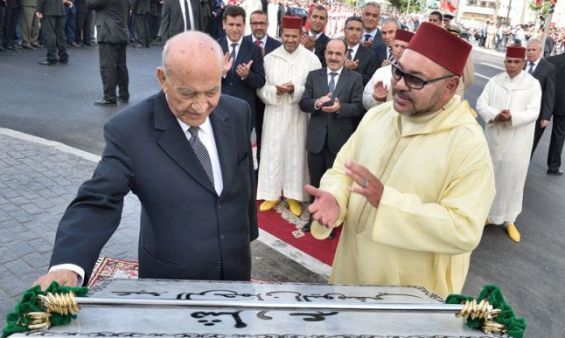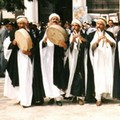Finally, and after retiring from politics for 16 years, Abderrahmane Youssoufi is sharing with the public the years he spent as a Prime Minister under the reign of King Hassan II. In the first chapter of his memoirs, written by Mbarek Bouderka, the Socialist Union of Popular Forces' politician who served as head of the government from 1998 to 2002, described how he lived the last days spent with the late Moroccan sovereign.
Youssoufi started by remembering the day Hassan II was transferred to the hospital. According to his account, on the 23rd of July 1999 the Prime Minister was informed about the king’s deteriorated health condition. «While I was waiting for His Majesty’s instructions for the week’s work plan, I received a call telling me that the king was urgently transferred to the hospital», he wrote.
Youssoufi then headed to the Ibn Sina hospital in Rabat. «When I arrived there, I went directly to the wing where the king was staying but the doctors banned me from entering his room», he explained.
«The ones closed to him were full of faith although the look on their faces was saying that they were better informed about the sovereign’s situation and which went from bad to worse. After the Asr prayer, Sidi Mohamed, the Crown prince called me and said that the King’s condition is deteriorating and that we had to pray for him».
Later on, Youssoufi received a second call from the Crown prince informing him that King Hassan II passed away and ordering him to prepare a speech to deliver before the people. He then contacted him to tell him about the arrangements needed for the allegiance ceremony. «It was difficult to live through that day» said the human rights lawyer adding : «the hours were long and filled with pain and our loss was great».
The allegiance day
In his memoirs, Youssoufi shed light also on the allegiance ceremony to which he referred to as «civilized». He appreciated the way in which this important event was organized. «I have had the honor to be one of the signatories who signed the allegiance decree among members of the royal family», he said, «it was a source of pride for me, my party and for my movement».
Youssoufi met the Crown Prince, who will soon become King Mohammed VI ascending the throne after the death of his father. «The young king was patient although the pain he was going through during those days was deep. He felt responsible and understood the weight of what was awaiting him».
Two years later, and after his party won the first general elections conducted under the reign of King Mohammed VI, Youssoufi wanted to resign to allow the monarch to appoint a Prime Minister. Youssoufi’s demand was rejected at the moment and by the end of his term King Mohammed VI appointed Idriss Jettou.
Commenting on that, Youssoufi recalled that King Mohammed VI told him : «Many times, you have expressed your wish of resigning because of your health condition. I have decided to appoint Driss Jettou as a Prime Minister».
Youssoufi replied to the King’s decision at the time stating : «I thanked his Majesty for meeting this desire, but I told him that the current Constitution (1996) gives him the right to appoint whoever he pleases as Prime Minister. But according to the democratic methodology, the appointed Prime Minister must be a member of the Party that won the election and which was the Socialist Union of Popular Forces», he concluded.
Although he left the political scene the relationship between the previous Prime Minister and the young King never stopped.





 chargement...
chargement...













